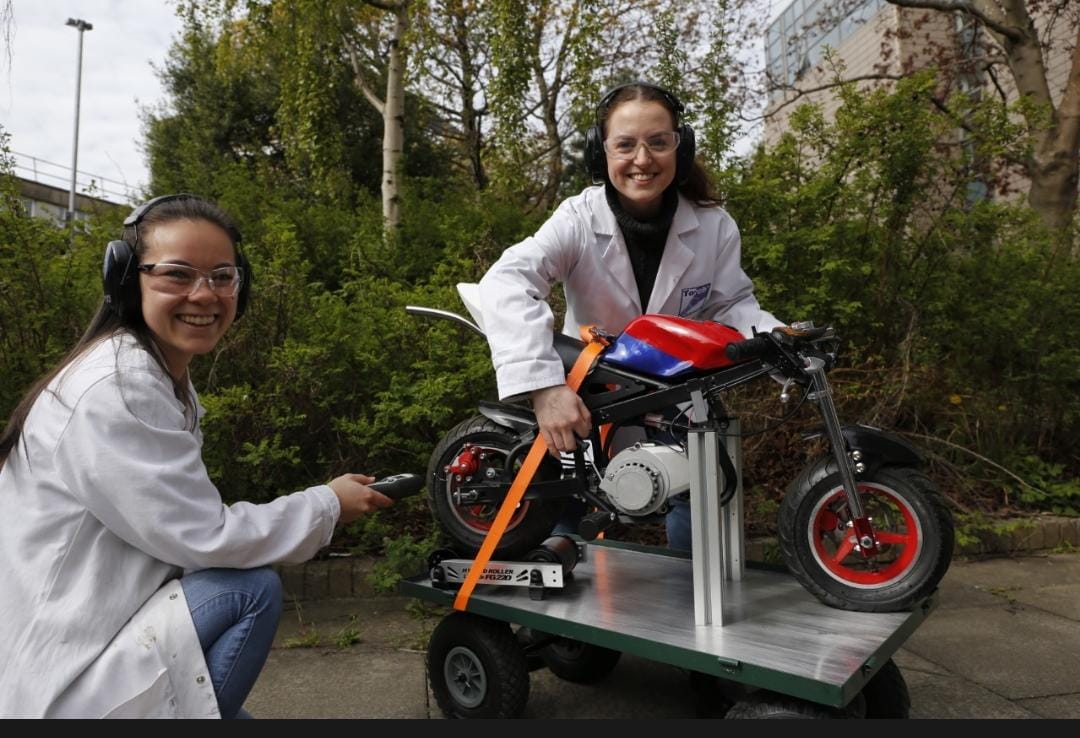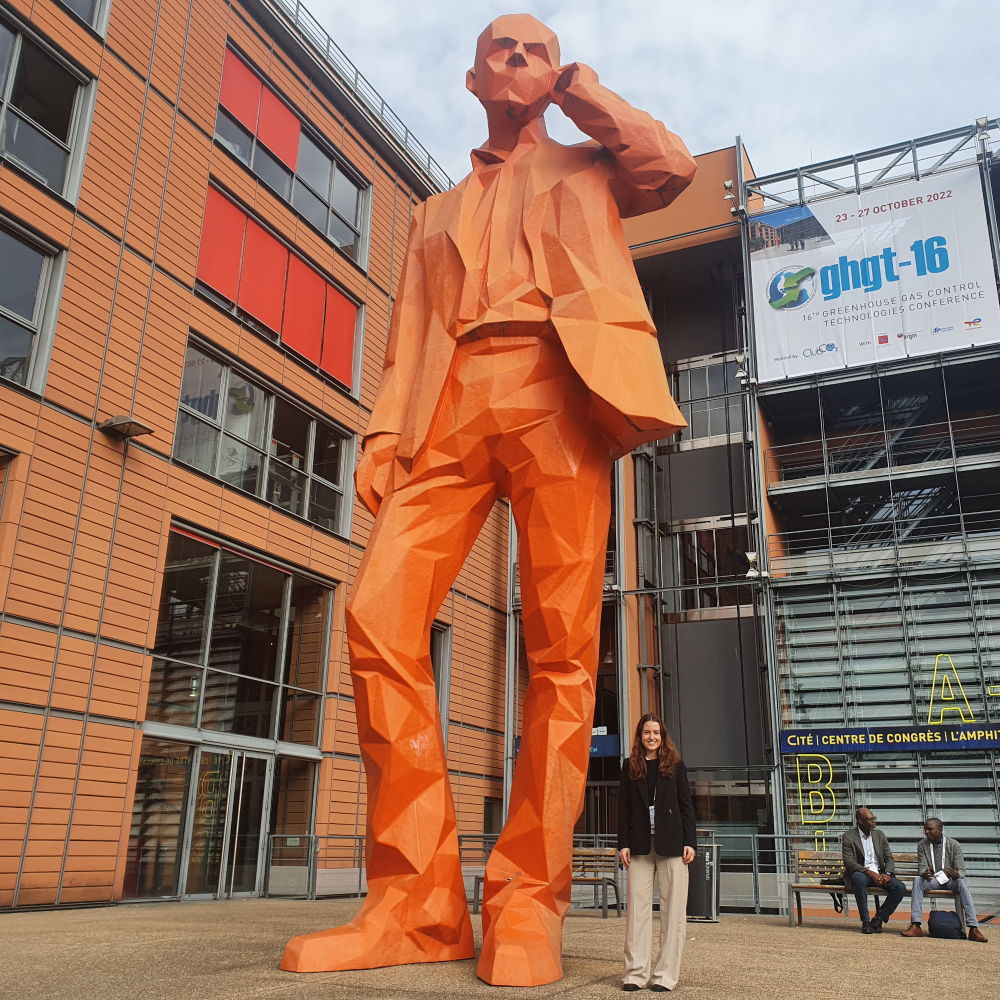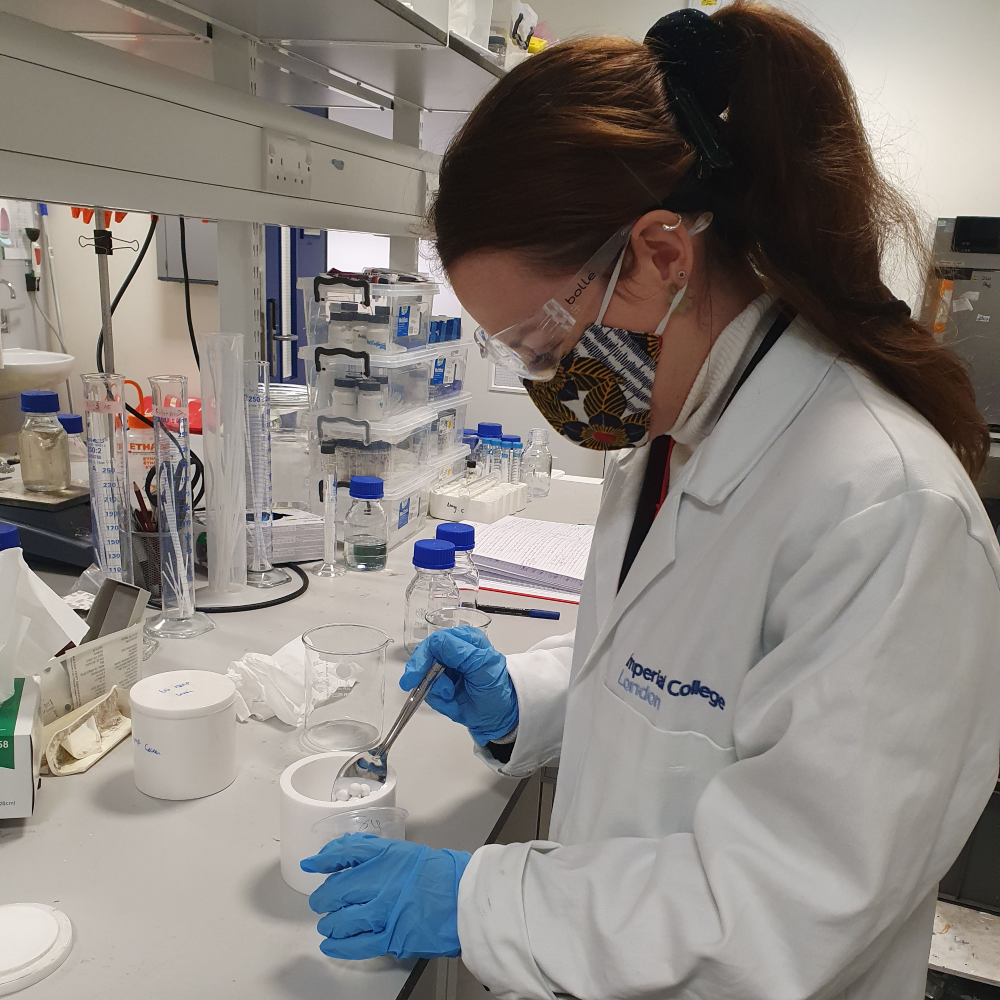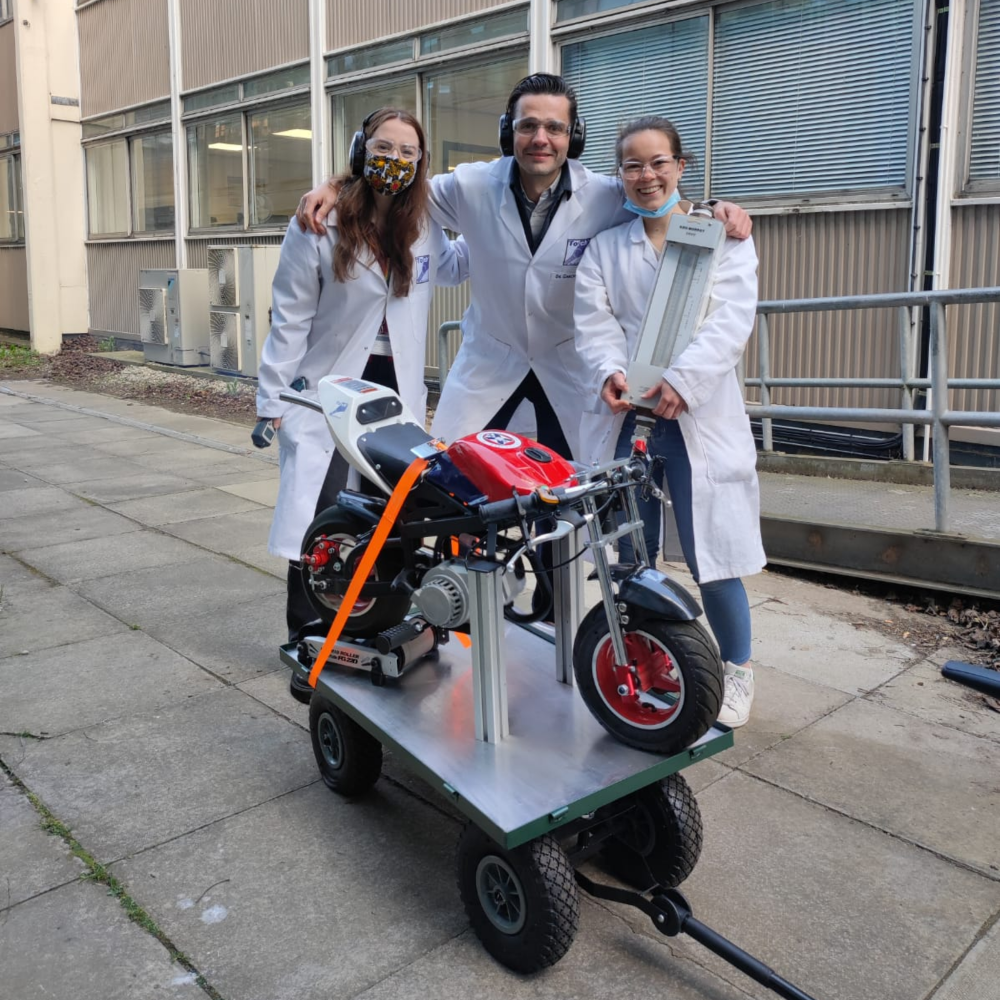Post date:

Collette Larkin is a PhD student (pictured above, right) from Hartlepool in Country Durham, who is working on new CO2 capture systems for the transport sector.
To mark 2022 United Nations Climate Change Conference (COP27), we spoke to Collette to find out how her research - and the wider engineering sector - can help tackle the pressing issue of climate change.
What first sparked your interest in engineering, and can you tell us a bit about the journey you've been on since then?
During my school career, I always liked maths and science but wasn’t interested in a career in medicine (the typical route people suggest). A friend recommended engineering to me and it was only after attending an open day for chemical engineering at the University of Edinburgh, that I decided it was a career worth pursuing.
Chemical engineers apply the fundamentals of maths and science to solve real-world problems and for me, it was that opportunity to contribute to the growth of society that was greatly appealing.
Fast-forward five years, in 2019 I graduated from the University of Edinburgh with an MEng degree in Chemical Engineering. It was during my degree that my interest in emission control and sustainable solutions first began. For instance, in my fourth year I worked on a group project that designed a hydrogen plant and distribution network to supply a nationwide fleet of hydrogen buses.
During the last year of my integrated masters, I completed a six-month placement at Arup’s Birmingham office as a Fire Engineer. This experience gave me a great insight into how a global consultancy works to serve our planet and fuelled my passion for shaping a better world. Fortunately, I was offered a graduate role with the Arup Fire Engineering team and moved to Birmingham in September 2019.
After working as a Fire Engineer for almost a year, I missed the core chemical engineering problems I had studied so returned to the University of Edinburgh to undertake my PhD research which aims to provide a feasible solution to low-carbon transport.
Whilst completing my PhD, I have travelled inside and outside of the UK, learned many new skills both experimental and analytical and have built a global network with academia and industry alike.

At the 16th Greenhouse Gas Control Technologies conference in Lyon, where Collette presented her research in autumn 2022
What is your PhD about? Why was this was an important area to pursue for you?
Transport is one of the most difficult sectors to decarbonise and will require additional mitigation strategies in order to achieve net-zero targets.
My research focuses on developing compact adsorption-based CO2 capture systems that can be retrofitted to fossil fuel-powered vehicles, enabling existing transport to be decarbonised to facilitate a Net Zero future.
The CO2 capture system I am studying in my research is more compact, more cost-effective and has a better capture performance than traditional adsorption-based CO2 capture systems, such that it can be feasibly implemented on-board both small and large vehicles.

Creating the dope solution that is used during the fabrication process of ceramic hollow fibres.
Is there any advice you would share with the next generation of young people interested in getting into engineering?
For those who are considering a career in engineering, my reply would be to go do it!
Although it might be hard work, engineering is a universal language. It provides you with the tools required to collaborate with many cultures across the globe, help solve worldwide challenges such as climate change and have a positive impact on all living-beings.

Collette with Dr Francisco Garcia Garcia and fellow PhD student Claire Leishman (left to right)


